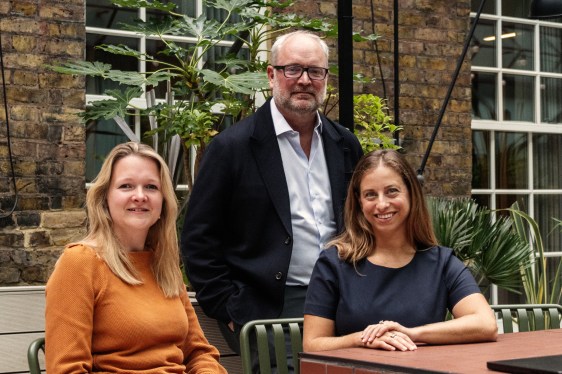The lack of growth capital in Europe is a persistent issue that has led some early-stage firms to take matters into their own hands. London-headquartered firm Notion Capital is one such firm. In 2017, Notion Capital was one of the first in Europe to close an opportunities fund to provide its portfolio companies with follow-on capital. Now it has closed a new 130 million dollar growth fund, nearly twice the size of its previous one, which will also invest outside of its portfolio.
According to managing partner Stephen Chandler, US venture capital firms that previously helped fill the growth capital gap are now focusing more on their own market. This situation opens an opportunity for European firms like Notion to make up the difference and become real European champions. Some of the European companies Notion intends to champion from its new Growth Opps III fund are tied to the growing demand for more sovereignty, including those specializing in defense and supply chain logistics.
Like many other firms, Notion Capital is also drawn to artificial intelligence. Chandler sees AI as a super cycle causing a profound shift in the way software is delivered and consumed. The firm does not plan to invest in the infrastructure layer, such as large language models. Instead, it sees opportunities in the application layer that will massively increase the size of its market. While Notion’s flagship fund has historically been known for its strong focus on SaaS, cloud, and fintech, these areas will now be AI-infused and joined by new verticals.
The firm expects to make about a dozen investments from the new fund and has already started deploying its capital. Deals to date include Upvest, a stock trading API from its early-stage portfolio, as well as external companies like Kraken, an Octopus Energy spinoff, and Nelly, a startup that builds software and financial products for the medical sector.
To ensure robust objectivity, follow-on deals will be conducted by dedicated growth fund partners who will also source growth stage opportunities outside of the portfolio. Existing Notion Capital partner Stephanie Opdam will drive this growth strategy alongside Jessica Bartos, formerly a principal at Salesforce Ventures. Bartos is a US national and Notion Capital’s first external partner hire, as previous partners were promoted internally. Chandler stated that because this was a new strategy, the firm felt it could benefit from external expertise at the growth stage.
Subsequent growth funds may be easier to raise. While Europe has suffered from a lack of pension funds investing in venture capital, incentives have started to change in several countries, including France with the Tibi initiative and the UK with the Mansion House Accord. Despite its British roots, Notion Capital is not solely dependent on the UK regulatory framework. This latest Growth Opps III fund is denominated in euros and based in Luxembourg.
To raise this new vehicle, which brings its assets under management to over one billion dollars, the firm relied on existing relationships with limited partners from across continental Europe, the UK, the Middle East, North Africa, and the US. Approximately 85 percent of its capital comes from institutions, and that capital is very well geographically dispersed. Chandler noted that while recent initiatives to mobilize long-term institutional capital were not a major feature in this fund, the signs are extremely positive for addressing the fundamental problem of growth capital gaps in Europe.
If these initiatives work out and more limited partners participate in growth stage investing, it could translate into more competition for Notion Capital, at least at the growth stage where it is less established than at the early stage. However, Chandler sees both stages as a continuum. He stated that the firm’s real competitive advantage in this growth strategy is leveraging the reach it has in its early stage strategy, which most growth funds lack. Notion Capital has many touch points with founders over the years through its active platform team and is flexible in its check size.
Despite its expanded scope, the main asset of Growth Opps III arguably remains Notion Capital’s own portfolio. The firm has invested in more than 150 startups since its inception, including Currencycloud, GoCardless, Mews, Paddle, and Quantum Systems. While some companies are from the pre-AI era or have been exited, the remaining companies likely include future champions. This track record should make external companies more willing to accept growth funding from Notion, even if growth capital becomes less scarce in Europe.

